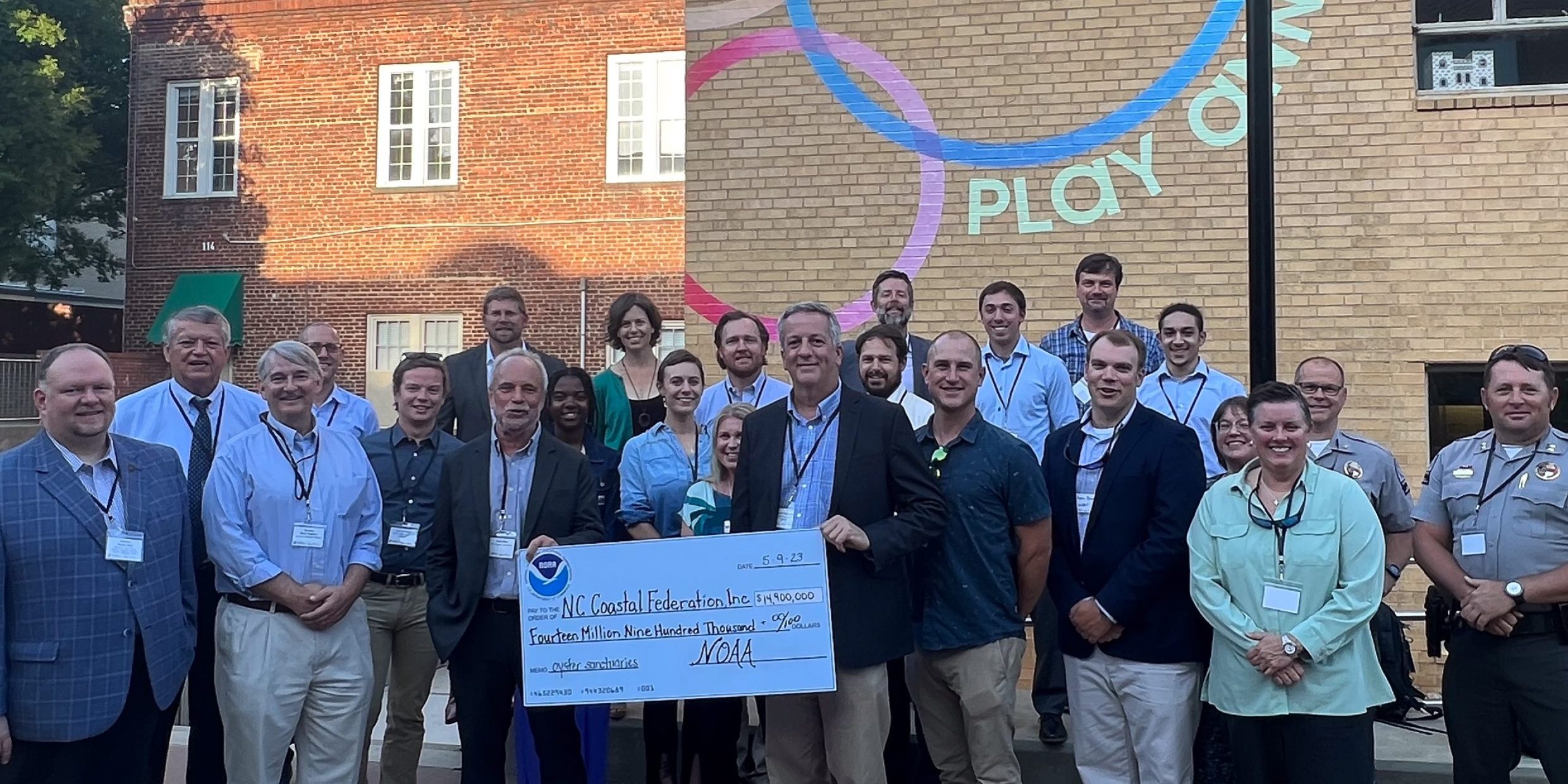A $15 million announcement and a spotlight on the state’s oyster resources greeted the about 200 that came together for the 2023 North Carolina Oyster Summit.
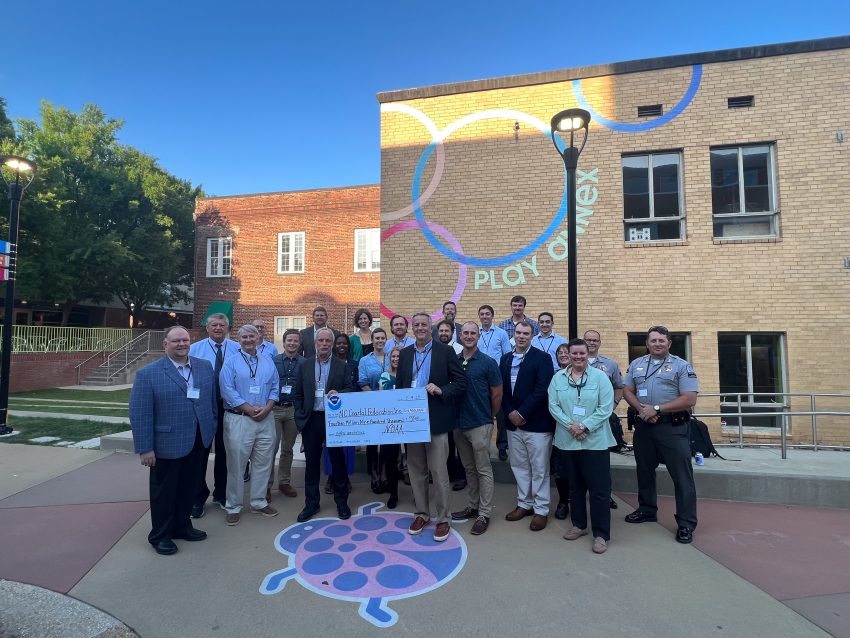
Coordinated by the North Carolina Coastal Federation, the two-day event last week in Marbles Kids Museum brought together educators, elected officials, local, state, and federal representatives, environmental groups, and others invested in the health of the state’s oysters. Attendees heard panel discussions, and presentations on past and planned work, watched an oyster shucking contest, and enjoyed oysters from farmers along the coast.
At the start of the summit, Coastal Federation Board Member Tom Looney greeted everyone with praise, “The work you’re all doing is having a significant impact on North Carolina in so many different ways.”
“I’ve often said we can be the global leader in oysters, and I believe we’re on a path to make that happen.”
To kick things off, Howard Schnabolk, team leader for the South Atlantic region of the National Oceanic and Atmospheric Administration Fisheries Restoration Center, announced that the nonprofit organization has been recommended for $14.9 million in funding to reach its 500-acre oyster sanctuary goal in the Pamlico Sound.
Schnabolk said the funding for the oyster sanctuary project is through the Transformational Habitat Restoration and Coastal Resilience Grants program. “The Restoration Center received 170 eligible applications requesting over $1.1 billion in federal funds. Out of those 170 projects, we’ve recommended 38 for funding, and those proposals are receiving a total of $260 million.”
The Biden-Harris Administration first announced the recommendation on April 21. The award is pending final approval.
The proposal submitted by the Federation requested funding to complete the 500-acre Sen. Jean Preston oyster sanctuary, Schnabolk explained. The North Carolina General Assembly voted in 2015 to establish the network of oyster reefs named after longtime coastal legislator and retired teacher who died in 2013.
Schnabolk said the proposal, “also adds a great novel aspect of the project plans by working to cultivate a diverse group of scientists,” he said, and they’re looking forward to seeing how that evolves.
Schnabolk is referring to a collaboration of the Coastal Federation, North Carolina State University’s Center for Marine Sciences and Technology, and North Carolina Central University. The program will provide hands-on opportunities for underrepresented graduate and undergraduate students studying marine sciences.
Sen. Norm Sanderson told the crowd that it is rewarding to see so many that support the oyster industry.
“You know, we often hear about win-win situations. This is a win-win-win-win situation, “he said about the funding. “To me. It’s a win for the environment. It’s a win for the state of North Carolina. It’s a win for the consumers and the taxpayers of North Carolina. And it’s a win for the folks who make all of this happen, who actually the feet on the ground, that are in waist-high water planting oyster seeds.”
North Carolina Department of Environmental Quality Secretary Elizabeth Biser followed Sanderson by saying she was glad to be able to celebrate the leadership of the group when it comes to protecting and growing the state’s oyster resources, which are so very important for so many reasons.
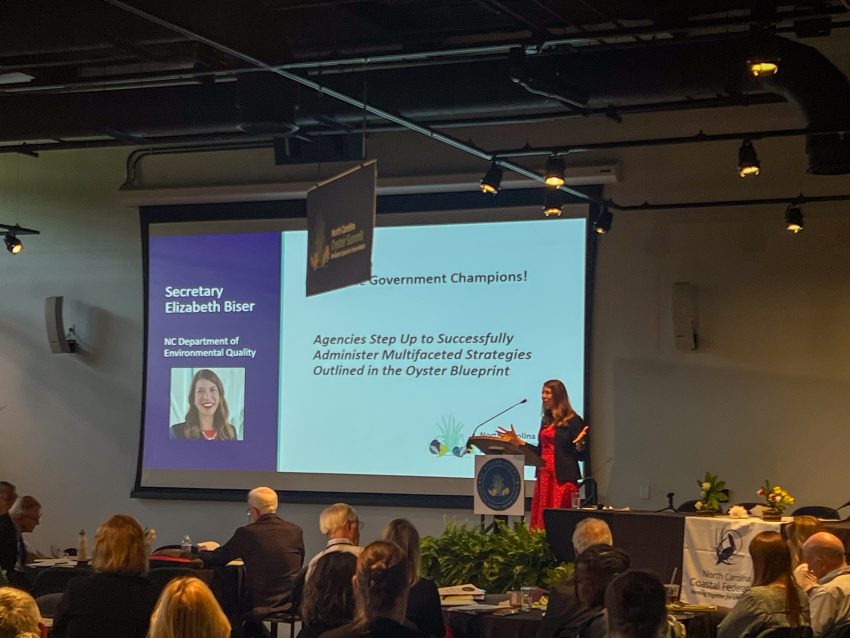
Biser said the agency sees many of the accomplishments of those in attendance.
“I don’t have to tell all of you that our state has become a leader among all of the Atlantic and Gulf Coast states for our oyster restoration efforts,” she said. This has been done through partnerships, the public and private sectors coming together to invest in the future of oysters in the state, and oysters “improve our water quality, which is part of our core mission here.”
She went on to say that “oysters benefit us in so many ways, both economically and ecologically, providing us with a strong seafood industry. A source of food and habitat for fish, improved water quality, and wave attenuation that protects our coastlines from erosion, naturally.”
The state DEQ oyster sanctuary program is one of the largest oyster restoration programs in the country.
“It fosters large, healthy oyster populations for the state’s waters, and a more abundant oyster population directly translates to improved water quality, healthy ecosystems, and strong commercial harvest,” she said.
We’re making great progress on all fronts of oyster restoration, protection, and management. And we’re excited for the next phase of this work, Biser said. “I tell you what, I love any morning that I get to start out with a $15 million check on oyster restoration.”
This is a huge milestone for the oyster sanctuary program 500 acres of sanctuary waters, state appropriations, federal grants, and other funding opportunities have made this work and partnership possible, she said.
A healthy environment and a healthy economy go hand in hand, “and we see that so strongly with the economic benefits of oyster restorations because investing in restoration and protection really pays off and creates jobs, especially for our rural areas,” she said, citing a 2016 economic analysis that found every dollar invested in oyster restoration projects provides North Carolina with $4 of benefit, “that’s a great rate of return.”
There are also substantial ecosystem benefits. Healthy coastal habitats are connected with healthy fisheries and increased coastal resilience and more frequent more intense storm events.
“So now with $15 million coming from the federal government and additional support from the state legislature, North Carolina is poised to continue making great strides in oyster restoration and protection efforts, which will accelerate this work producing resilient coastal habitats provide additional economic development opportunities all along the coast,” she said.
She closed by saying that the 500 acres are just the beginning and “we are excited to advance this great work with continued support and investment.”
Speaker Bios
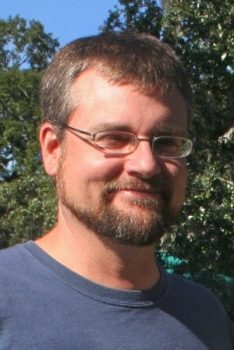
Troy Alphin
Troy Alphin currently serves as a Research Faculty member with the University of North Carolina Wilmington in the Department of Biology and Marine Biology and the Center for Marine Science and the Scientist in Residence for the Center for Innovation and Entrepreneurship (CIE). He is a benthic ecologist and shellfish biologist, who has worked on issues of vital importance to the restoration and maintenance of critical estuarine habitats such as marsh, oyster reefs and living shorelines. Mr. Alphin has served on state and regional groups to review and evaluate critical issues impacting wild and cultivated shellfish. Mr. Alphin is one of the creators of the first GIS based siting tool, in NC the NC Shellfish Aquaculture Siting tool and most recently a business training platform for the shellfish growing industry “Shellfish Mariculture Propel”.
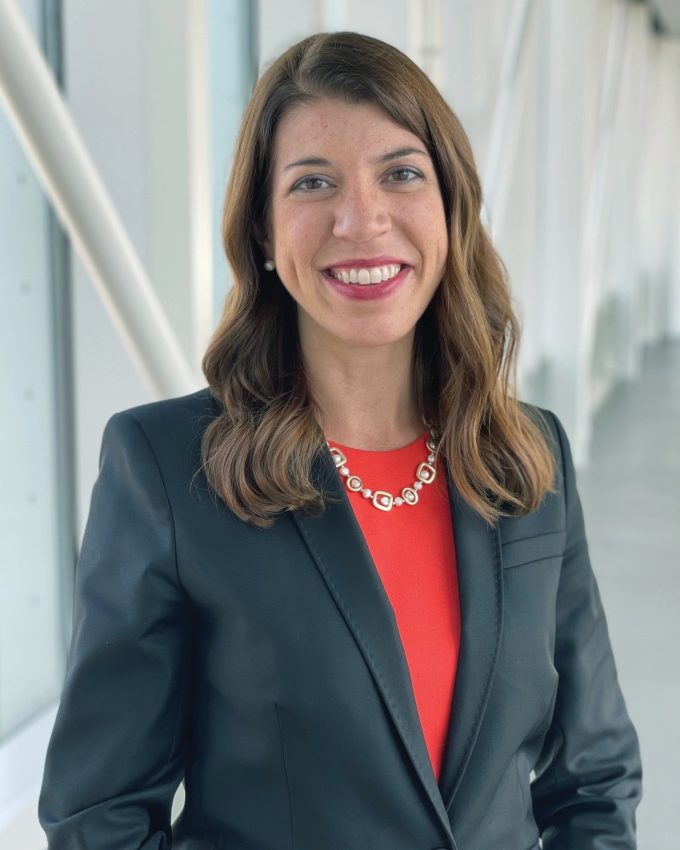
Sec. Elizabeth Biser
Governor Roy Cooper named Elizabeth S. Biser as the Secretary of the North Carolina Department of Environmental Quality in June 2021. She is the first woman confirmed as DEQ Secretary. She oversees the state agency whose mission is to provide science-based environmental stewardship for the health and prosperity of all North Carolinians. Secretary Biser returned to DEQ after 11 years in the private sector, having formerly served as Director of Legislative and Intergovernmental Affairs. She holds a Bachelor of Arts and a Master of Public Administration from the University of North Carolina at Chapel Hill.
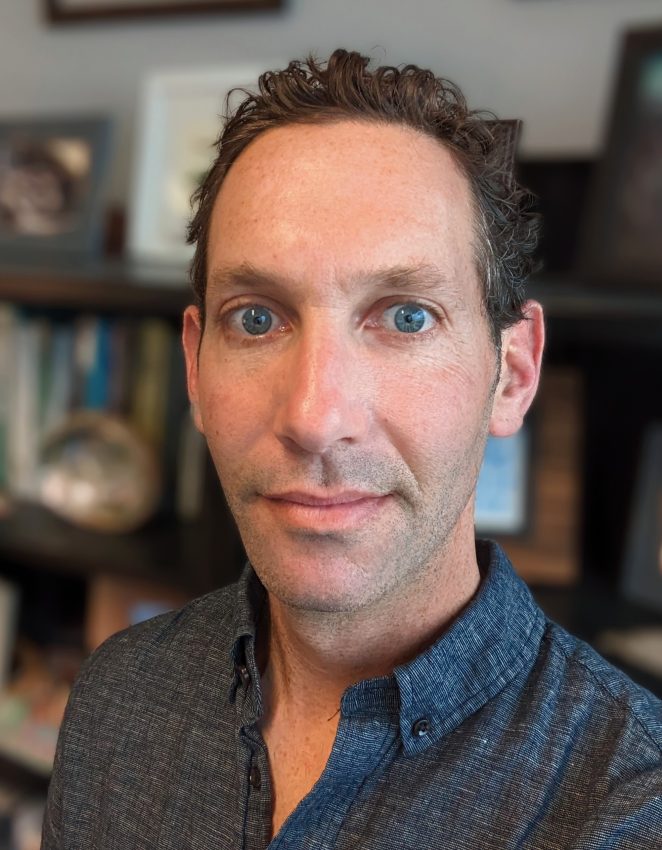
Dr. Tal Ben-Horin
Dr. Ben-Horin serves as the Assistant Professor of Shellfish Pathology and Director of NC Shellfish Pathology Laboratory at North Carolina State University.
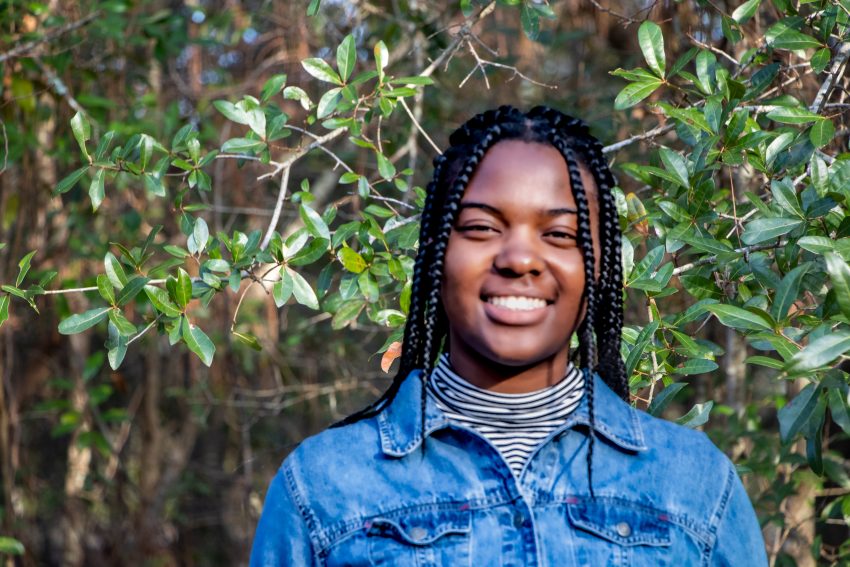
Victoria Blakey
Victoria joined the Federation in June 2022 as the Northeast Region’s Coastal Specialist. She holds a Bachelor of Science in Environmental Science with a specialization in Environmental Education and Interpretation from Bowling Green State University. As a Detroit, Michigan native, Victoria’s background includes working as an environmental educator. During her time at the Federation, Victoria has worked to grow the Restaurant to Reef Oyster Shell Recycling Program, led both walking and kayaking tours on the Federation’s demonstration oyster lease, engaged in the Oyster Trail, helped to build patch reefs, and has taken the initiative in designing a number of the logos and print materials for the Oyster Summit.
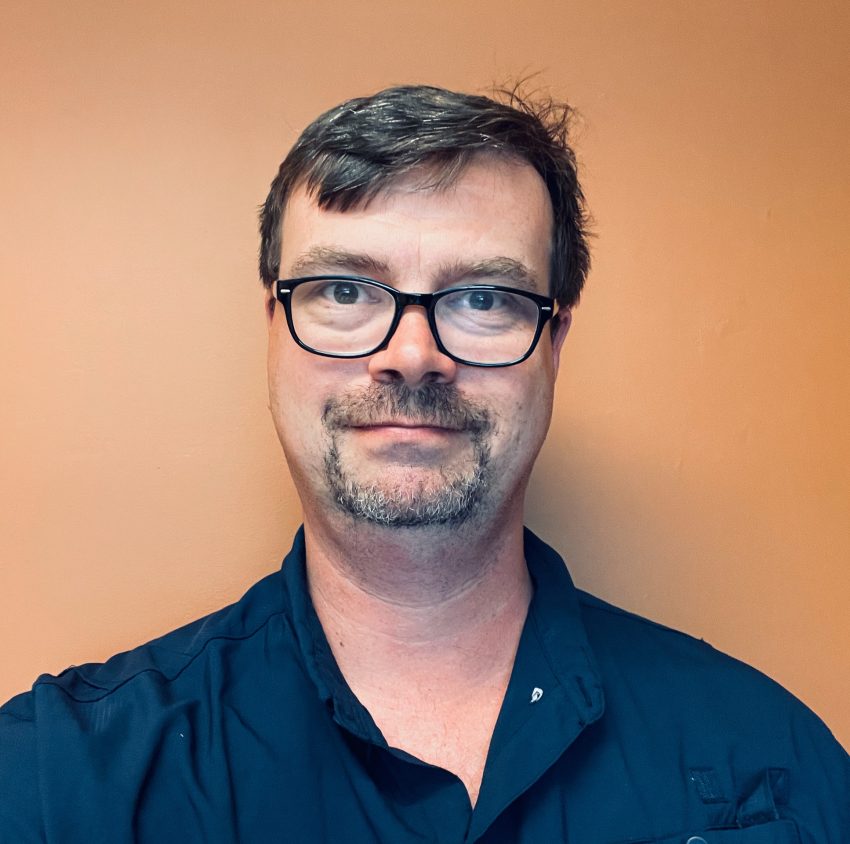
Dr. Del Bohnenstiehl
Dr. Del Bohnenstiehl is a Professor within the Department of Marine, Earth and Atmospheric Sciences and a Faculty Fellow at the Center for Geospatial Analytics at NC State University. Del has over 25 years of experience using active sonars and passive underwater acoustic data to investigate various geophysical and ecological processes. He has been involved in numerous seafloor mapping expeditions and has authored dozens of scientific papers examining underwater sound within the coastal and deep ocean.
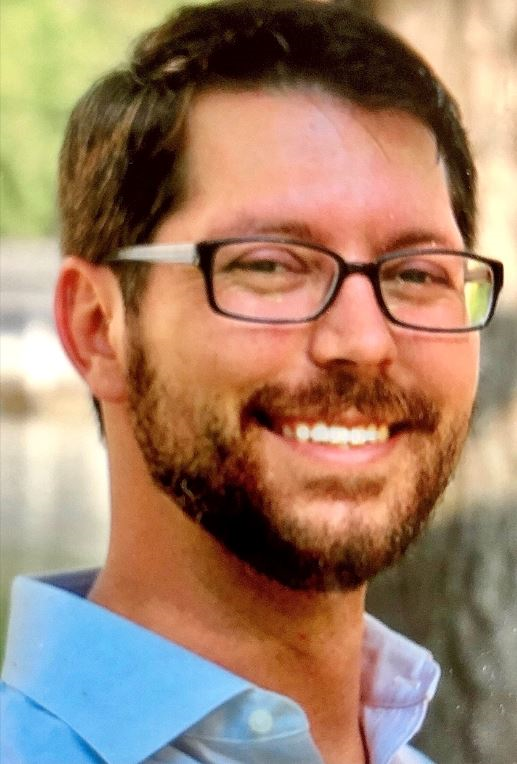
Daniel Bowling
Daniel Bowling is a NOAA Davidson Graduate Fellow at the NC NERR and a graduate candidate at NC State University pursuing his Ph.D. in Marine Science in the Department of Marine, Earth, and Atmospheric Sciences (MEAS). His current research is focused on investing the NC oyster population and developing methods for fishery-independent monitoring in support of a future fisheries stock assessment. Work within the NC Coastal Reserve and National Estuarine Research Reserve (NERR) is focused on applying remote imaging from drones to quantify intertidal oyster reef biophysical condition and development management tools.
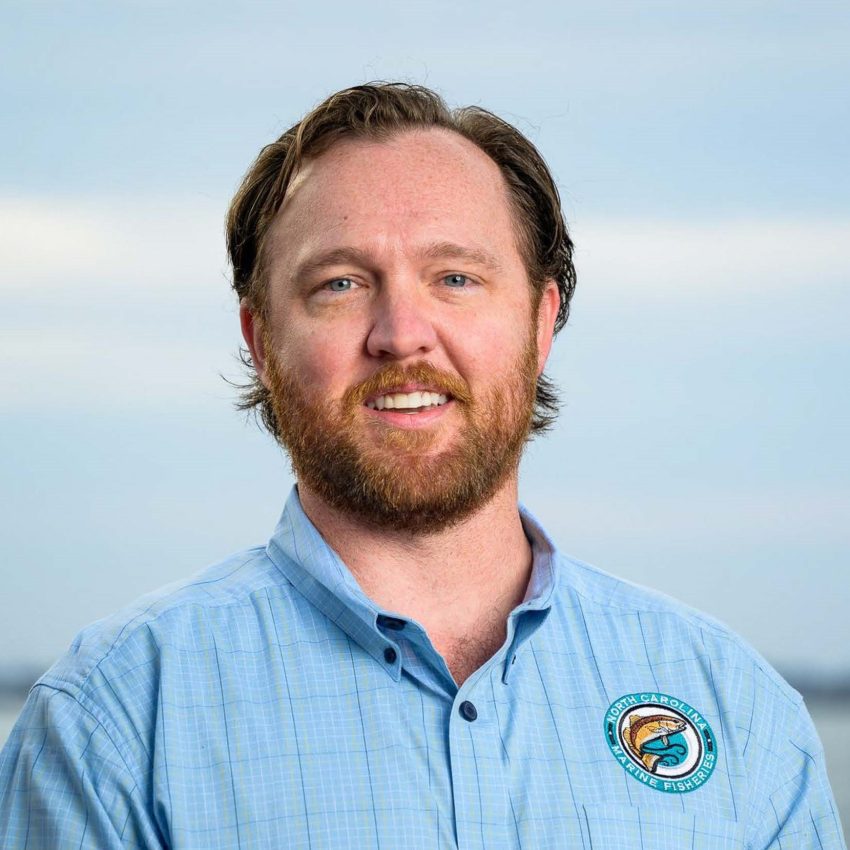
Jacob Boyd
Jacob Boyd has served as Chief of the Habitat and Enhancement Section for the NC Division of Marine Fisheries since 2018 and has been with the Division for 16 years. Jacob oversees multiple programs responsible for the management and coordination of large-scale marine and estuarine habitat restoration and enhancement. The program’s goals are to enhance, restore, and protect North Carolina’s coastal habitats to promote sustainable fisheries and coastal resilience. Jacob holds a Master’s Degree in Biology from East Carolina University and a Bachelor’s Degree in Environmental Studies from the University of North Carolina at Chapel Hill.
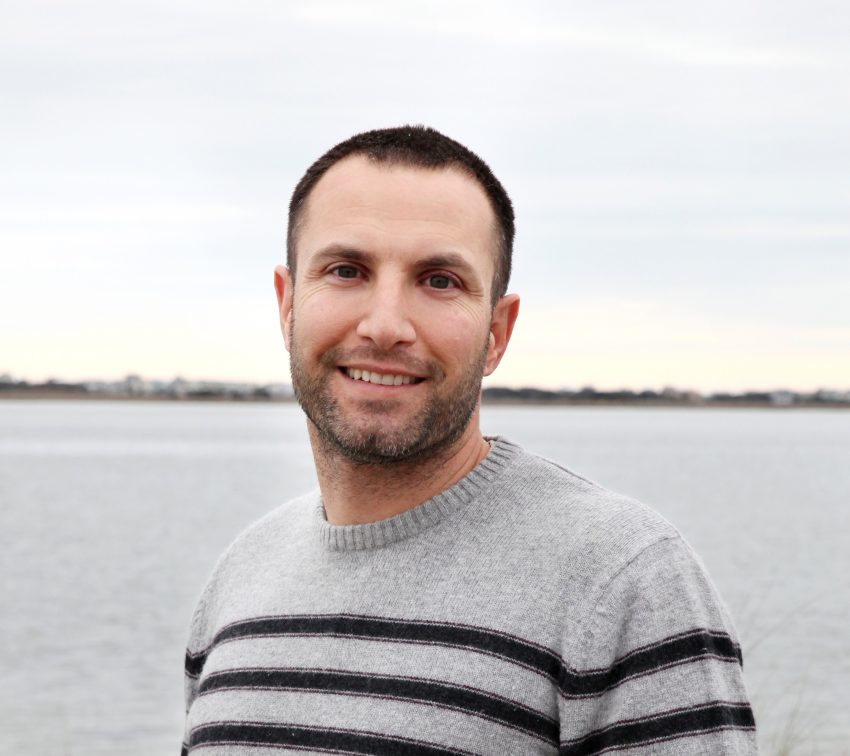
David Cerino
David Cerino is the Chair of the Aquaculture Technology Program at Carteret Community College (CCC) in Morehead City, NC. The primary focus of his work is on education, training, and workforce development for a variety of aquaculture related fields. CCC carries out applied research to improve aquaculture productivity and sustainability. Collaboration with industry, academic partners, regulators, and NGO’s offers opportunities for students to engage in experiential learning and support industry growth.
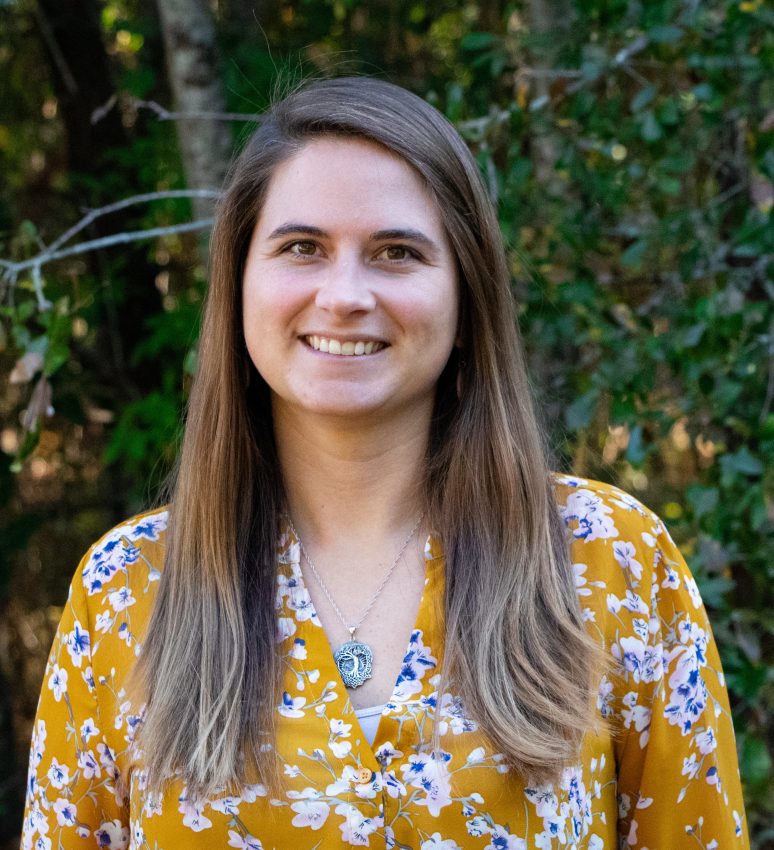
Bree Charron, P.E.
Bree, a Manteo native, joined the Federation in 2016 as a Coastal Specialist in the Ocean office. She holds a Master of Science in biological and agricultural engineering and a Bachelor of Science in environmental science and wetland assessment from North Carolina State University. In 2021, Bree successfully attained her Professional Engineer license and now manages the survey, design, and construction oversight of the Federation’s water quality projects, including stormwater retrofits and large-scale wetland restoration. As Water Quality Program Director, Bree oversees the Federation’s mission to improve water quality and reduce flooding from the first stages of planning through implementation.
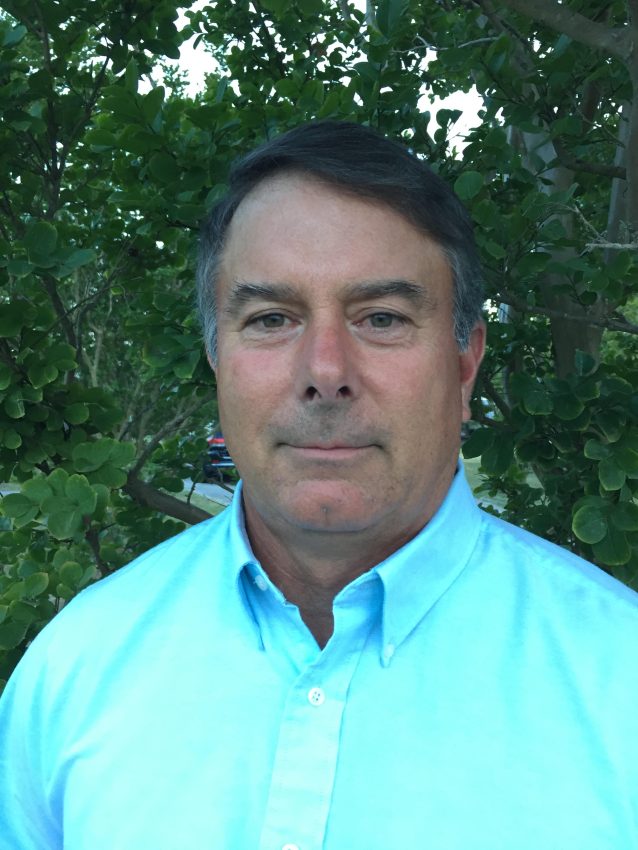
Wilson Daughtry
Wilson Daughtry is a 39 year resident of Engelhard, NC currently involved with farming, land development, land hydrology restoration, pumped drainage system design and installation, and consulting work for landowners with drainage problems. Since 1986 he has worked as operations manager for the Mattamuskeet Association, a 42,312 acre pumped drainage area in northeastern Hyde County. During his tenure with the Mattamuskeet Association, he has been personally involved with disaster recovery efforts involving the State and FEMA in 1999, 2003, and more recently in 2016 with the aftermath of Hurricane Matthew. During the past 10 years he has designed and installed numerous drainage pump structures in Hyde, Washington, and Tyrrell counties in mostly agricultural applications but some municipal settings. His hydrologic restoration work has involved partnerships with the Natural Resource and Conservation Service, NC Coastal Federation and various private landowners. Wilson graduated from NC State in 1984 with a BS in Agricultural Economics. He currently serves on the Drainage Advisory Board for Hyde County, the Lake Mattamuskeet Watershed Restoration Project stakeholder group, and the Hyde County Airport Advisory Committee.
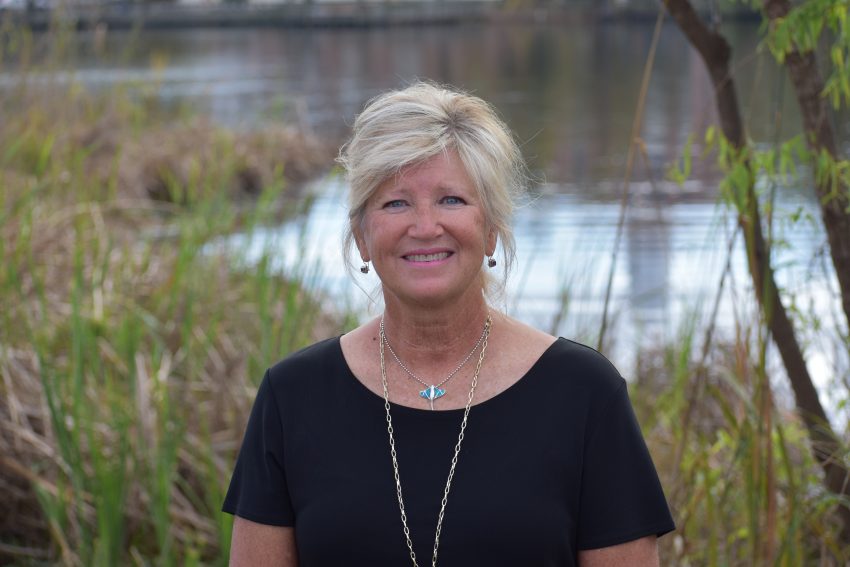
Pat Donovan
Pat Donovan-Brandenburg is the Stormwater and Soil/Erosion Control Manager for the City of Jacksonville for the past 24 years. She has worked on cleaning up and opening the New River Watershed starting with the Wilson Bay Initiative in 1999 and now the Oyster Highway. Before her position with the City she worked in the Florida Keys for The Nature Conservancy, John Penne Kamp Coral Reef State Park, Marine Resources Development Foundation and taught at the Florida Keys Community College. Prior to leaving for the keys she worked for the Fort Fisher Aquarium and the Institute for Marine Biomedical Research where she worked on the “Bee Bee Project” in Bermuda. Pat has her Bachelors of Science and Masters of Science in Marine Biology from UNCW.
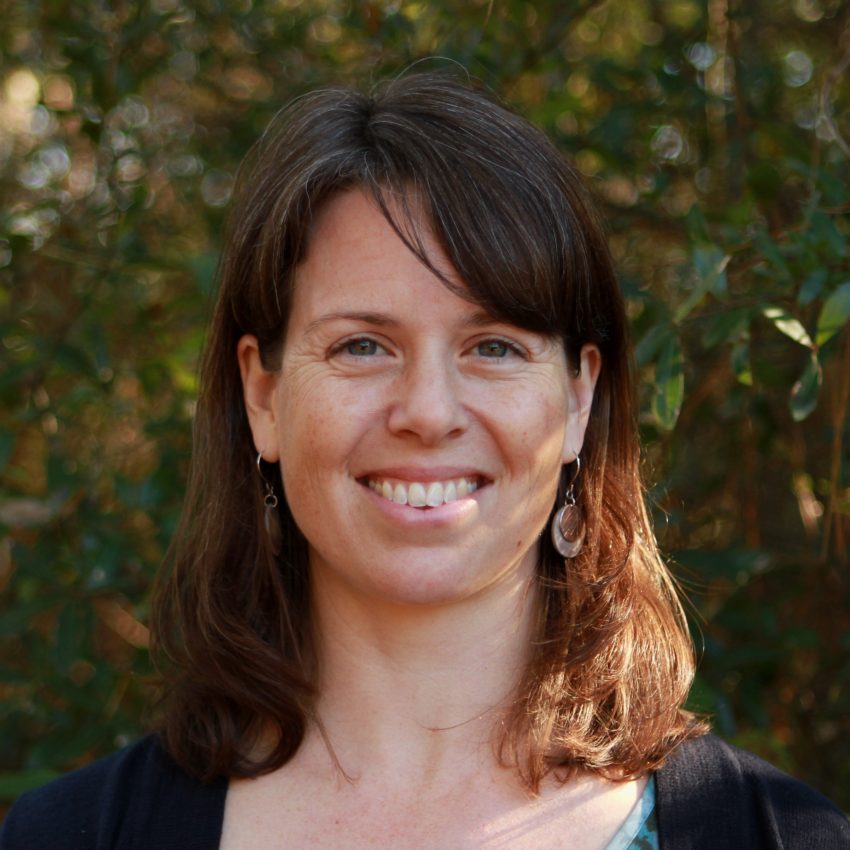
Erin Fleckenstein
Erin serves as the Oyster Program Director for the North Carolina Coastal Federation. She oversees and coordinates the Federation’s implementation of the N.C. Oyster Blueprint. The Blueprint is a strategic document that guides oyster restoration and protection measures in North Carolina. The Blueprint focuses on building our state’s oyster resources through water quality protection, building new oyster habitats, growing the shellfish mariculture industry, sustaining wild harvest and engaging the public in the work.
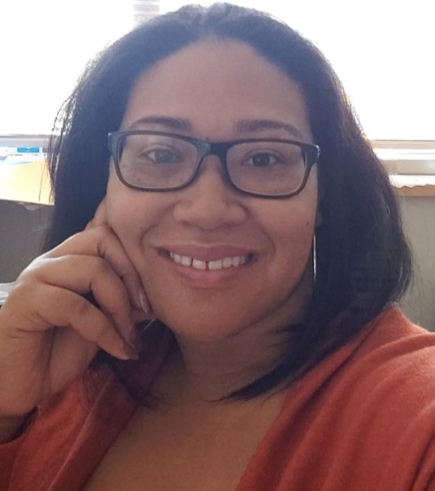
Dr. Carresse Gerald
The Gerald lab researches environmental exposures, airway pollutants and environmental contaminants. Dr. Gerald has researched environmental pollutants such as hog barn dust, cigarette smoke, diepoxybutane and mercury. Carresse received her PhD from North Carolina Agricultural and Technical State University in 2013 and spent 2 years as a Postdoc at the University of Nebraska Medical Center in Omaha, NE under the mentorship of Drs. Joseph Sisson and Todd Wyatt. She began her academic career in 2016 at NCCU in the Department of Environmental, Earth and Geospatial Sciences. She has received grant funding from NIH, NSF and the Department of Homeland Security.
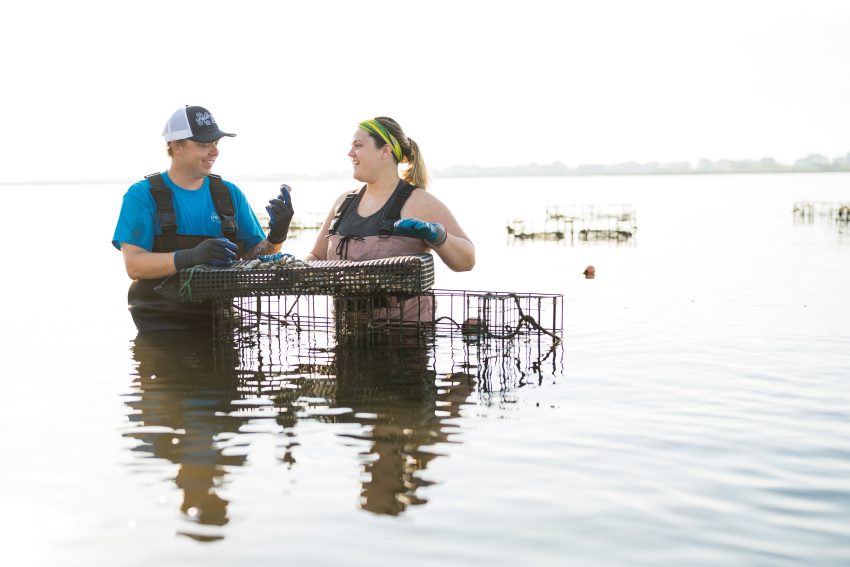
Ghost Fleet Oyster Company
Ghost Fleet Oyster Company (GFOC) is a small family owned and operated oyster farm located in Topsail, NC. In addition to growing oysters, GFOC focuses on sustainability and education through their oyster shell recycling program and oyster farm tours. GFOC’s signature oyster, the “Topsail Jewels”, have a salty, clean merrior.
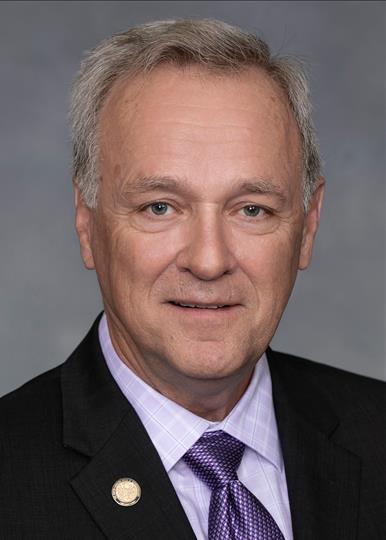
Representative Edward Goodwin
Rep. Goodwin is from a farming family in Edenton, NC. After graduating from East Carolina University, he joined the US Air Force, serving for 4 years before becoming a special agent with NCIS for 25 years. After retiring in 2005, he returned home and began farming. He is a former member and chairman of the Chowan County Commission. A candidate for secretary of state in 2012, Rep. Goodwin served as Director of the NC Ferry Division during the McCrory Administration. First elected to the House in 2016, Rep. Goodwin represents Chowan, Currituck, Dare, Perquimans,Tyrrell, Washington counties. He is chairman of the House Appropriations Subcommittee on Agriculture and Natural and Economic Resources as well as the House Committee on Military and Veterans Affairs.
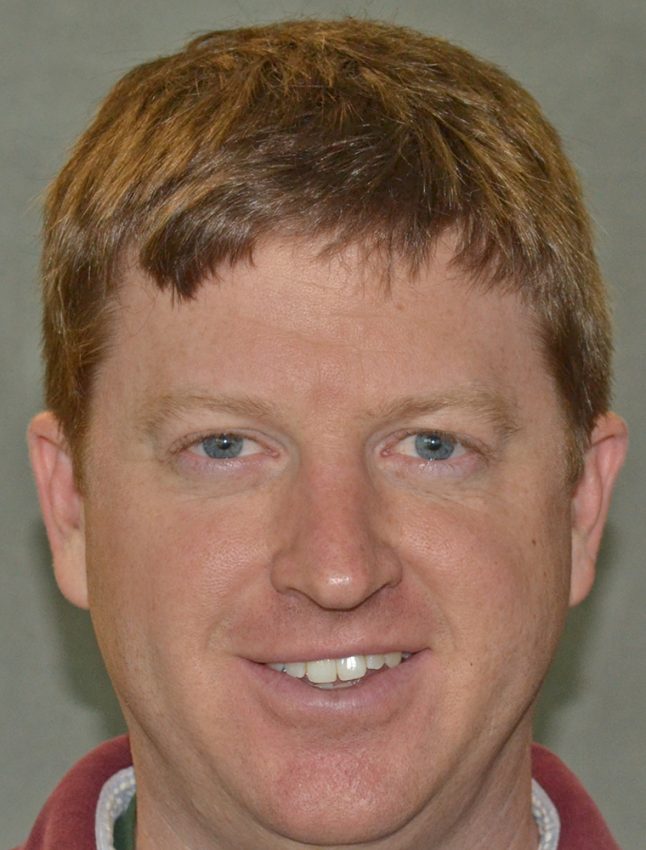
Andrew Haines
Andy Haines has worked with the Shellfish Sanitation and Recreational Water Quality Section for almost 19 years. He currently serves as the Shellfish Growing Areas Program Manager.
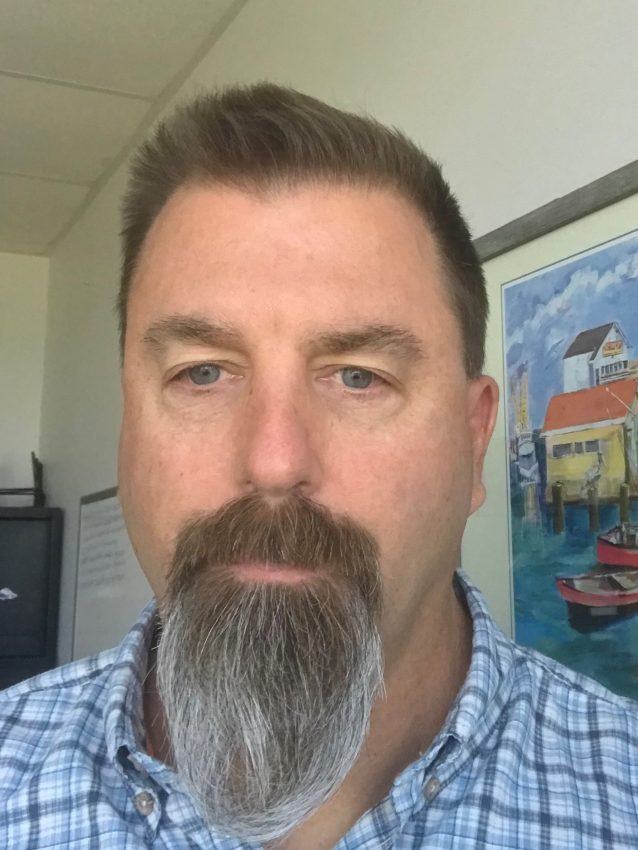
Eric Herbst
Eric Herbst, North Carolina Sea Grant’s coastal aquaculture specialist, works with a diverse group of stakeholders and partners to assess industry needs, identify challenges and develop science-based solutions to advance opportunities in the state’s growing aquaculture sectors that include shellfish, finfish and algae. He also supports workforce development and education programs and coordinates and conducts applied research with academic and industry partners.
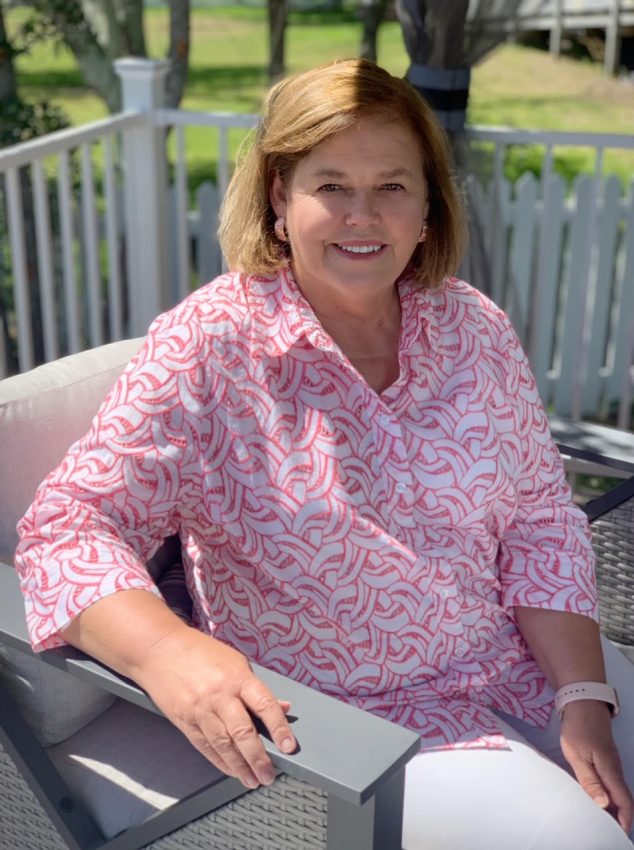
Susan Hill
Susan Hill is President and Co-owner of Down East Mariculture Supply, a family-run oyster nursery and hatchery in Williston, NC. She and her husband Robert have been working together since 2017, when they started renovations on the old Willis Brothers’ Seafood building on Jarrett Bay. Today, they provide oyster seed and gear to oyster farmers all along the NC coast. As part of the NC Oyster Trail, they offer educational tours to tourists and students from surrounding schools and universities. Susan is a retired diabetes educator and loves educating anyone who will listen about oysters and their contributions to our ecosystem.
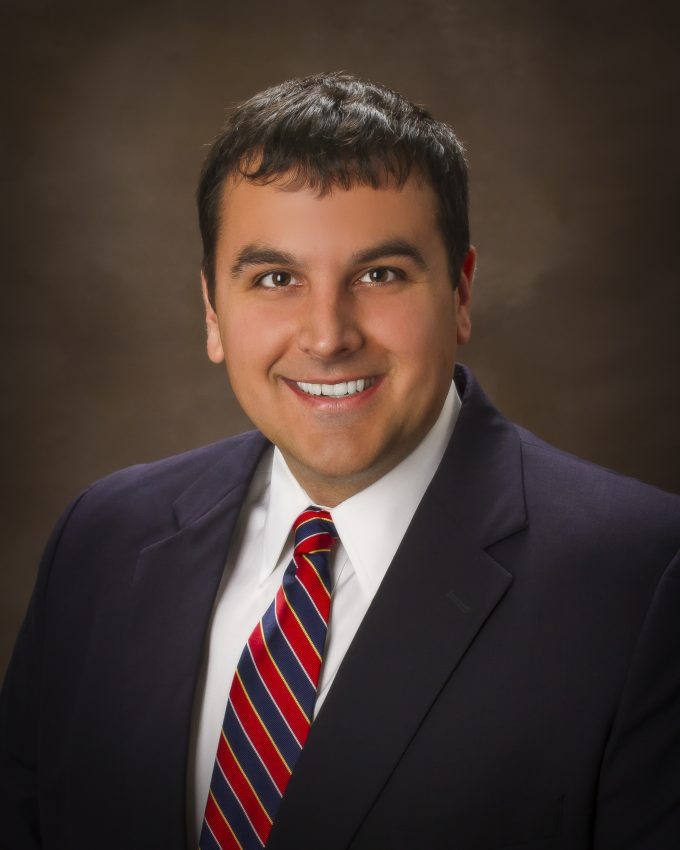
Jonathan D. Hinkle, P.E.
Jonathan leads the environmental and water resource engineering group for the Southeast Branch of Greenman-Pedersen, Inc (GPI), which covers North Carolina south to Florida. He has extensive experience managing ecological restoration and stormwater projects, from concept development and funding appropriation to construction support and project closeout. He is active on several water quality committees and task forces at the local and state levels. Jonathan has worked in both the private and public sectors and brings that experience to all phases of project development. He was challenged at a young age by his paternal grandfather to make a difference in this world by solving water issues, and he strives every day to honor that challenge. He is passionate about working with clients and staff to develop innovative engineering solutions to today’s water resource issues.

Tres Hundertmark
Thirty-five years in kitchens from Nantucket to New Orleans, a passion for oysters, a long tail. Being introduced to the world of competitive oyster shucking 2004 by George Hastings Sr. started a continuing journey that has brought him here today. Tres is co-founder with Doreen Rivers-Graham, of NCOyster365. A North Carolina based company providing brooker service to NC oyster farmers trying to get into markets outside of North Carolina. Inside the state, their NCO365 oyster club features North Carolina oysters at breweries, wineries, & bottle shops all over the state and into Virginia.
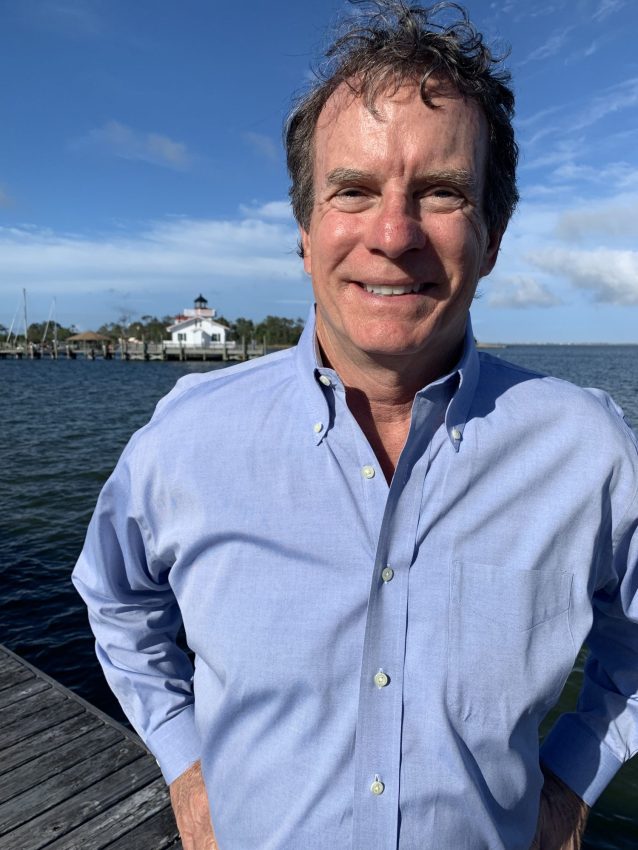
Bill Husted
Bill is a volunteer with the NC Oyster Trail where he helps lead the recruitment and support of the trail’s volunteers. He retired from his career in the technology industry in 2018. In his last position, Bill served as Vice President of Business Development where he helped build a software security consulting firm. Since his retirement, Bill spends his time volunteering with NC Oyster Trail, North Carolina Coastal Federation, the National Parks Service, the Manteo Preservation Trust, and enjoying life on the Outer Banks.
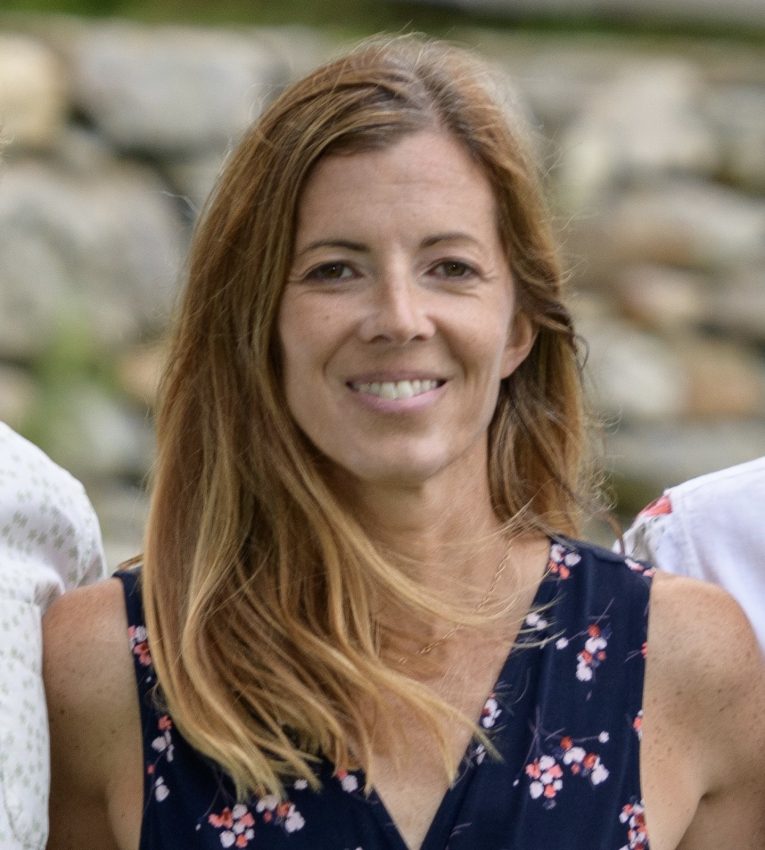
Kate Jones
Kate currently serves as the Deputy Planning Director for the Town of Nags Head. She is a licensed landscape architect who is passionate about improving the built environment and public areas while reducing impacts to natural systems through innovative and thoughtful planning and design solutions. Her areas of interest include climate change adaptation and mitigation, coastal nature based solutions, renewable energy systems, and public engagement. When not working you can find Kate doing yoga, surfing, watching a lot of soccer games, and enjoying the beautiful Outer Banks.
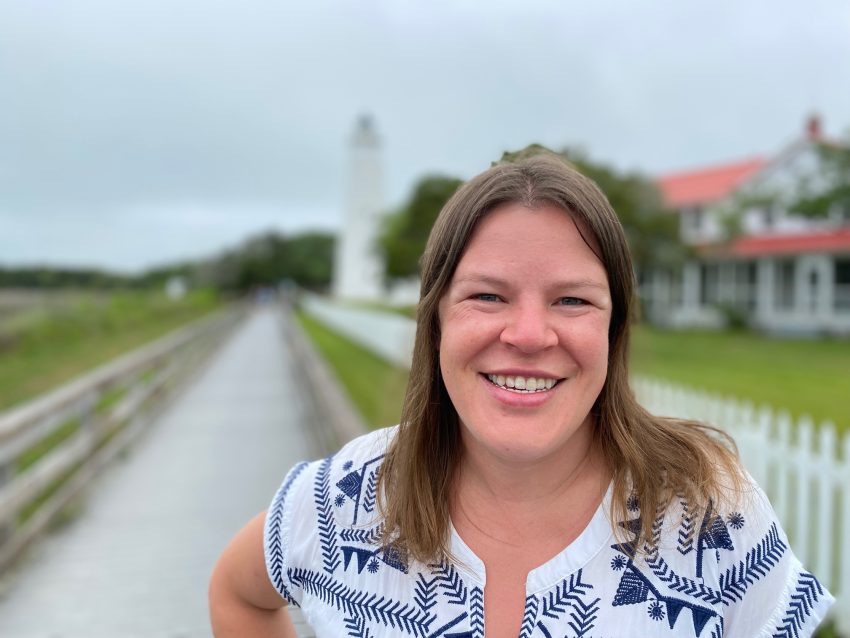
Dr. Whitney Knollenberg
As a faculty member in the Department of Parks, Recreation, and Tourism Management at NC State University Dr. Whitney Knollenberg’s research focuses on helping tourism industry leaders communicate the value of tourism and develop tourism in a way that maximizes its positive impacts. She has done this in a variety of contexts including studies of coastal tourism destinations, tourism advocacy, and workforce development. Whitney’s research also identifies how synergies can be built between tourism and other industries such as agriculture and craft beverage production.
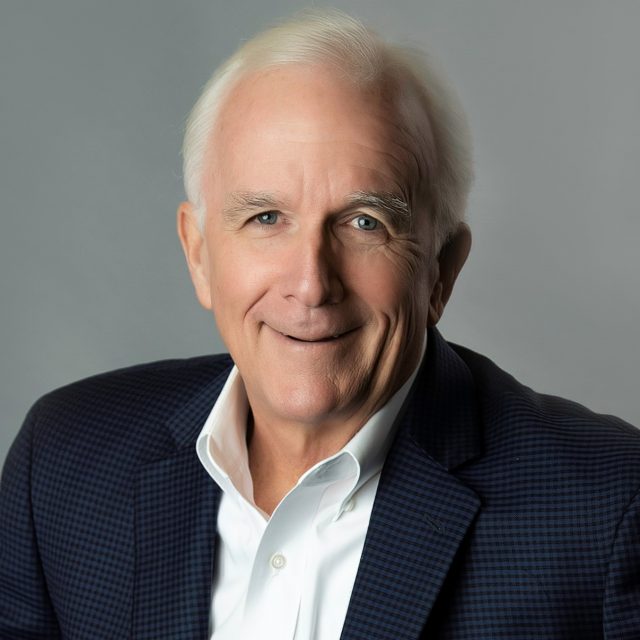
Tom Looney
Tom has a passionate commitment to the health of our coast and economic opportunity for our coastal communities. He has been a member of the NC Coastal Federation for over 20 years and chairs the Coastal Executive Leadership Council. He was instrumental in the creation and now execution of the NC Oyster Blueprint’s aquaculture strategy to create 1000 jobs and $100m in economic activity by 2030. He is the former VP and GM of Lenovo North America and prior to that worked at IBM for over 30 years where he held various executive positions. He currently serves on the State Board of the North Carolina Community College System.
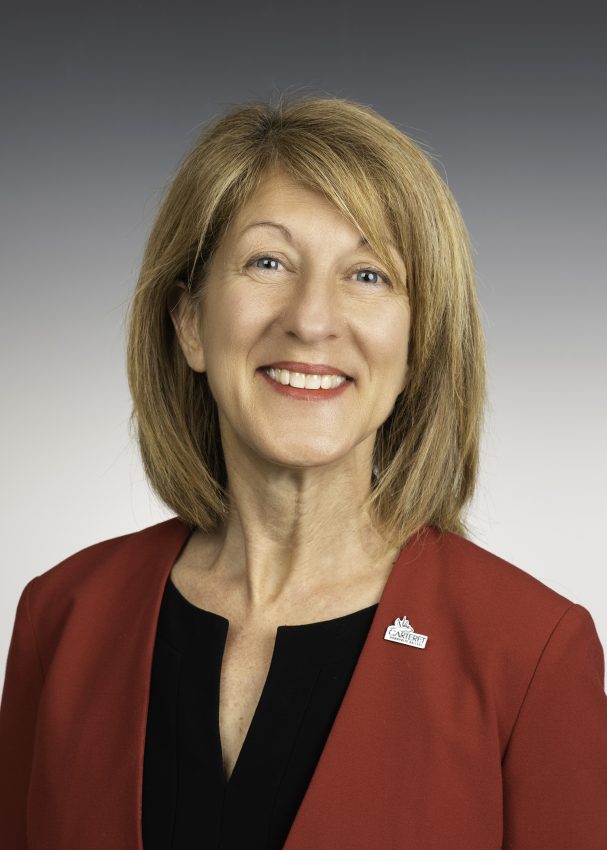
Dr. Tracey Mancini
Dr. Mancini became the sixth president of Carteret Community College. She assumed this role during the COVID-19 pandemic, in the midst of three state capital improvement projects and the creation of a 1,250-foot living shoreline on campus. Before becoming president, she held a series of progressively responsible roles for 20 years at Durham Technical Community College and Carteret Community College, from adjunct English instructor to VP of Instruction and Student Services. She has a Bachelor of Business Administration from the College of William and Mary, an MA in English from University of North Florida, a MTS from Duke University, and an EdD in Community College Executive Leadership from Wingate University.
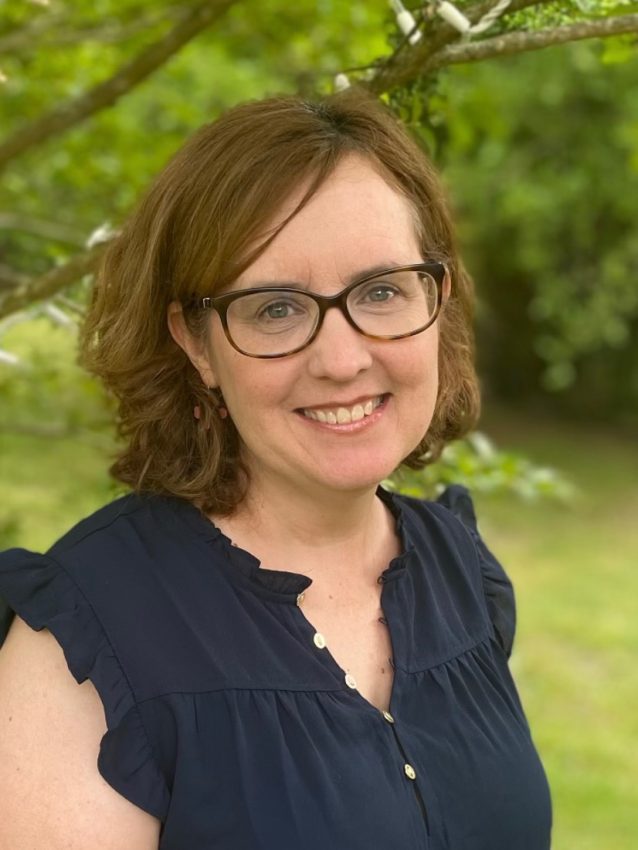
Mary-Margaret McKinney
Mary-Margaret McKinney is Director of Coastal Management for Native Shorelines and co-inventor of the patent-pending QuickReef™ living shoreline system. Winner of a 2022 Pelican Award for her work with living shorelines, she has managed over 100 living shoreline projects in North Carolina. She has been intricately involved in ecological restoration since the mid-90s and believes that successful projects hinge on trust and mutual respect for the needs of various stakeholders. Mary-Margaret holds a BS in Botany and a MS in Forestry from NC State University and is currently pursuing a PhD in Integrated Coastal Sciences at East Carolina University.
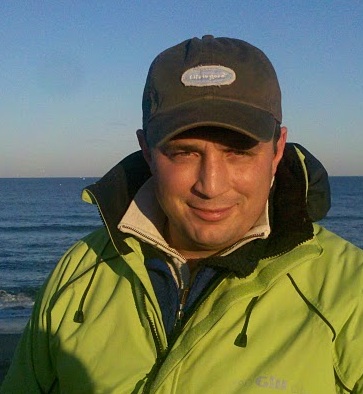
Chris Matteo
After graduating from the University of Pennsylvania with a B.A. in International Relations, Chris worked in the hedge-fund and technology industries. An unlikely beginning for someone now prominent in the North Carolina shellfish farming industry. In 2013 Chris started Chadwick Creek Oysters and Seed Nursery in Pamlico County. By 2018, he became president of the North Carolina Shellfish Growers Association, where he worked to reorganize it as a trade association and restructured its membership. During his tenure Chris has also been integral in procuring relief funds for oyster growers after Hurricane Florence devastated the region. In 2019, he founded Siren’s Cove Shellfish, a second oyster farm and shellfish dealership, which supports more than 70 growers. He also served as the industry voice for North Carolina’s Shellfish Aquaculture Bill which passed the same year. In March of 2020 Chris was appointed to the state’s Shellfish Cultivation Lease Review Committee and most recently he has been appointed Vice President of the East Coast Shellfish Growers Association. Chris continues to work his two farms and advise new growers in the industry.
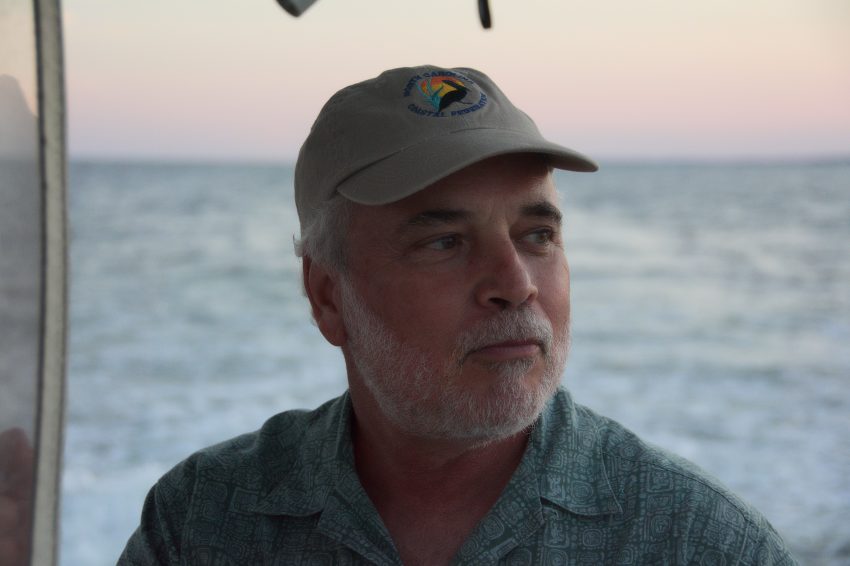
Todd Miller
Todd Miller is the founder and executive director of the North Carolina Coastal Federation. A coastal North Carolina native from the community of Ocean in Carteret County, it was here in 1982 that Miller found his passion—working to keep the coast a great place to live, work, visit, and play. Forming partnerships and rallying volunteers, Miller grew the organization from a one-man (and a dog) venture in a back room of his house to three offices covering the North Carolina coast with 30+ staffers, over 16,000 supporters and a multi-million-dollar budget targeted to educate and engage the public, government agencies, landowners and businesses in coastal stewardship. Since the launch of the Federation four decades ago, Miller has worked tirelessly to raise awareness of the threats to the coast and advocate for access to clean coastal waters. In bringing together like-minded folks from all walks of life, from fishers, farmers, boaters to beachcombers, the Federation under Miller’s leadership has helped to conserve and improve hundreds-of-thousands of acres of North Carolina coast.
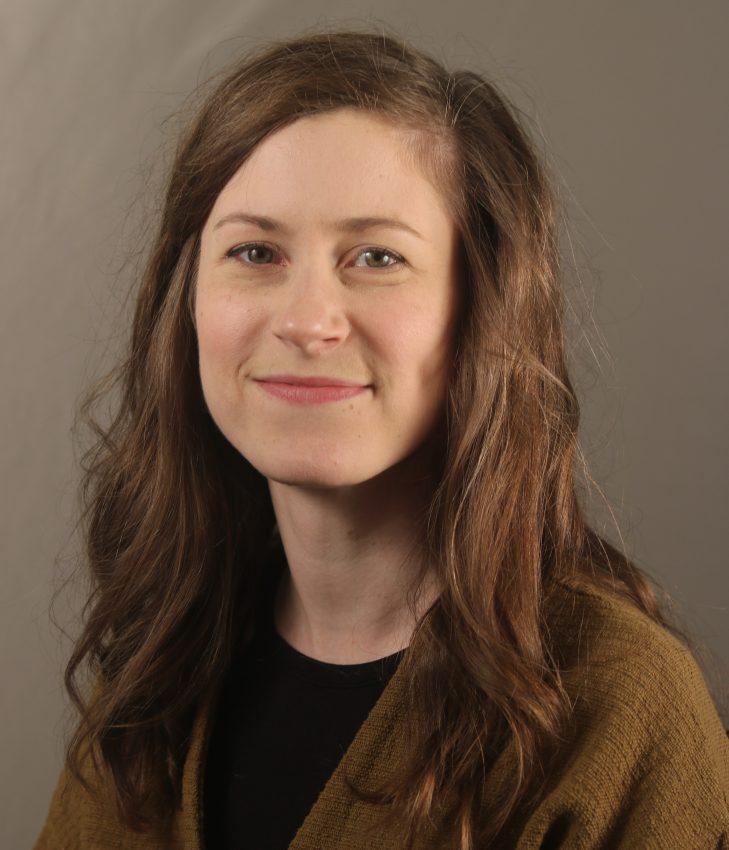
Dr. Natalie Nelson
Dr. Nelson is an Assistant Professor in the Biological and Agricultural Engineering Department at NC State University. She specializes in water quality modeling of fresh and coastal surface waters, and is particularly interested in how water quality affects food systems and vice versa. She received her BS and PhD from the University of Florida in Agricultural and Biological Engineering with a focus in hydrologic sciences.
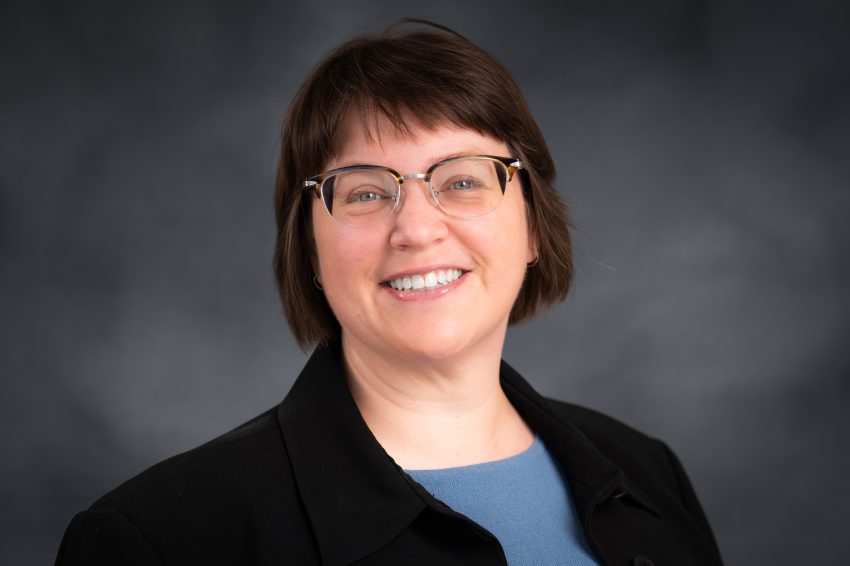
Sara Nienow
Sara Nienow, an applied economist in RTI’s Center for Applied Economics and Strategy, has 15 years of professional experience in economic analysis and program evaluation. Ms. Nienow works with clients to identify and measure economic impacts associated with new facilities, industries, and public spending using macroeconomic models. Before working for RTI International, Ms. Nienow was a principal program evaluator for the North Carolina General Assembly. In this role, she evaluated the efficiency and effectiveness of state programs. Ms. Nienow performed cost-benefit analyses to support rulemaking at the Department of Environment and Natural Resources before working for the General Assembly.
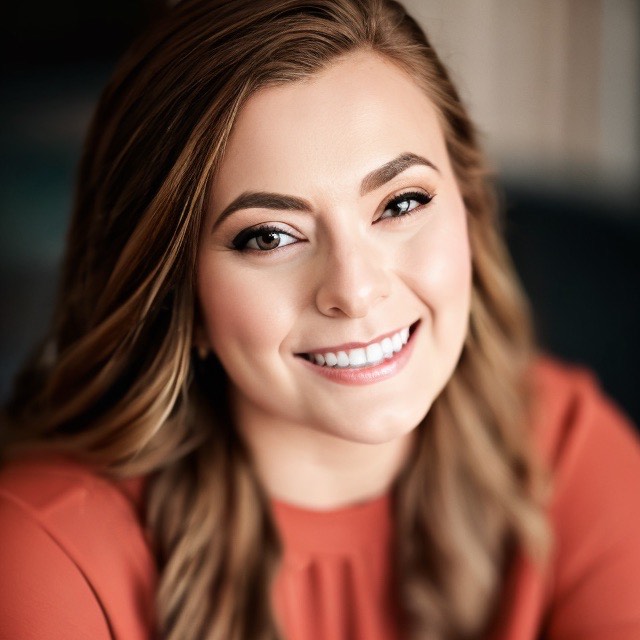
Somer (Bjork) Peede
Somer is the Outreach and Education Coordinator for Coastal Environmental Partnership, which operates the Tuscarora Landfill in Craven County, and the transfer stations in the counties of Carteret and Pamlico. In this role, she acts as a liaison between the local school districts and the landfill to implement solid waste management educational programs for all ages. In addition, she handles the Partnership’s Household Hazardous Waste (HHW) collection events and all media regarding the Partnership. Before transitioning to this role, she was an elementary educator in the Craven County school system for 8 years.
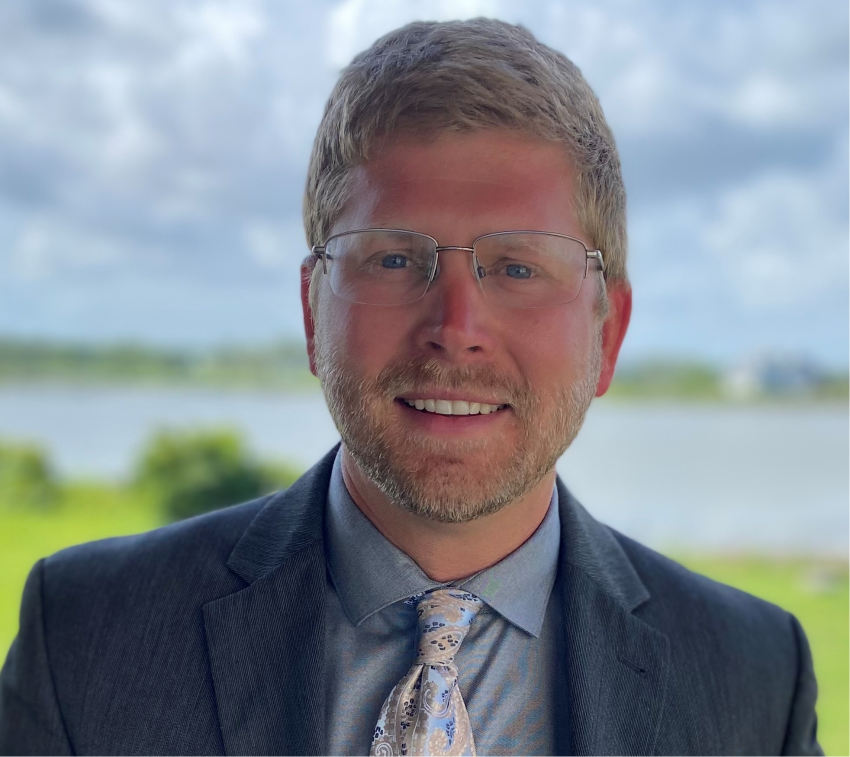
Jason Peters
Jason Peters is an Environmental Program Supervisor for the North Carolina Division of Marine Fisheries. He is responsible for all the division’s habitat construction efforts, including the Artificial Reef, Oyster Sanctuary, and Cultch Planting programs. Jason is a Virginia native but has spent the majority of his adult life in Eastern North Carolina studying marine ecology and enjoying the wonderful marine resources the state has to offer. He has a BS in Biology from Christopher Newport University and a MS in Biological Oceanography from North Carolina State University. Jason is a USCG Master Captain, avid diver, and recreational fisherman.
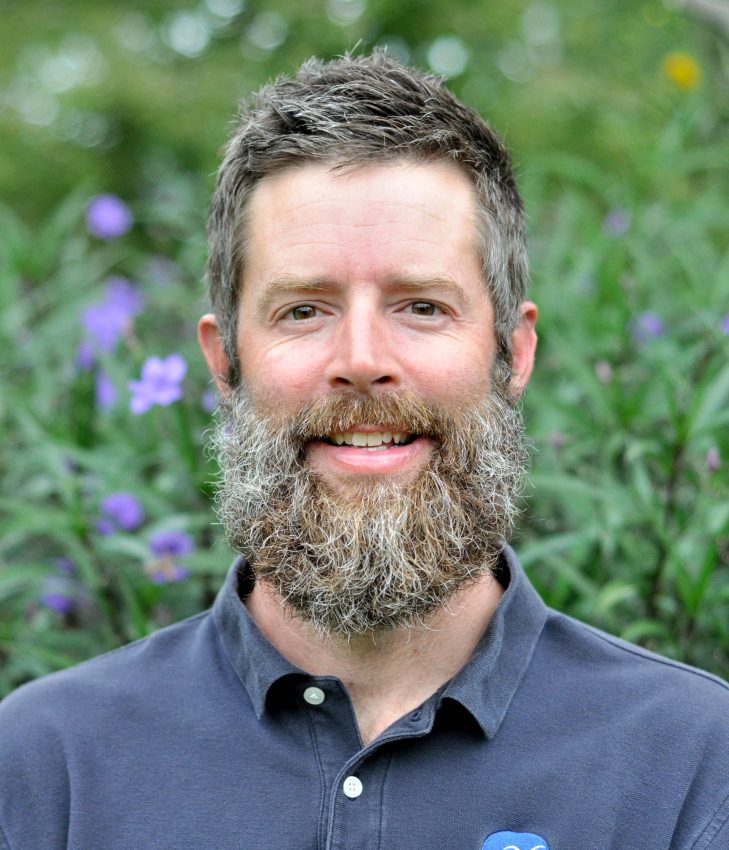
Dr. Brandon Puckett
Dr. Puckett is a research marine biologist in the Coastal Resilience, Restoration and Assessment Branch at the NOAA Beaufort Laboratory. Through applied research, he strives to provide science-based solutions that improve restoration outcomes and the resilience of coastal ecosystems. For over 15 years, his research (along with MANY collaborators) in habitat modeling and population dynamics has provided actionable science for North Carolina’s Oyster Sanctuary Program. Brandon received his B.S. from NC State University, a M.S. from the University of Maryland, and a Ph.D. in Marine Science from NC State University.
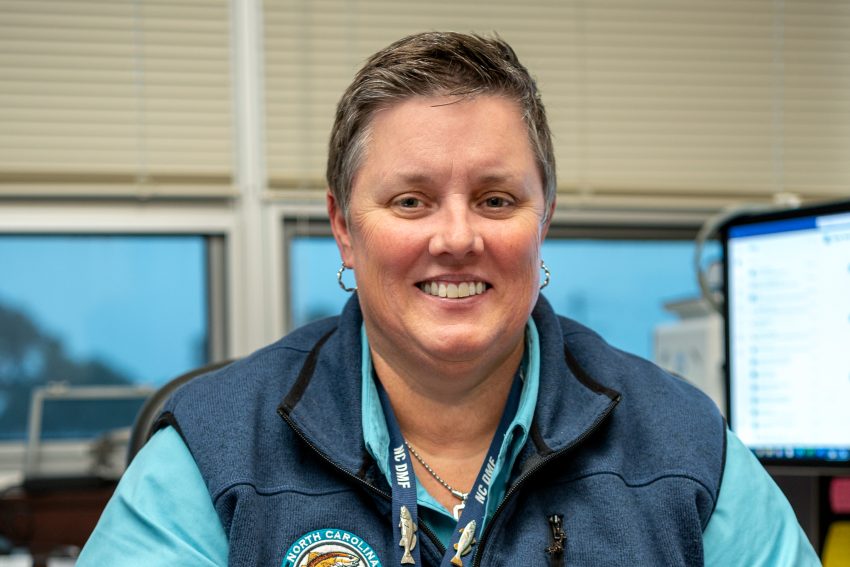
Kathy Rawls
Kathy currently serves as Director of the NC Division of Marine Fisheries. Rawls began her career with DMF in 1990 as a river herring technician. Her skill as a manager and her uncanny ability to connect with stakeholders ultimately led to her promotion to District Manager in the Elizabeth City District Office. In 2014 she moved to DMF Headquarters located in Morehead City to serve as the Fisheries Management Section Chief for the Division. The commitment and dedication to the fisheries of North Carolina displayed by Rawls throughout her career culminated in her being named Director of Marine Fisheries in 2021.
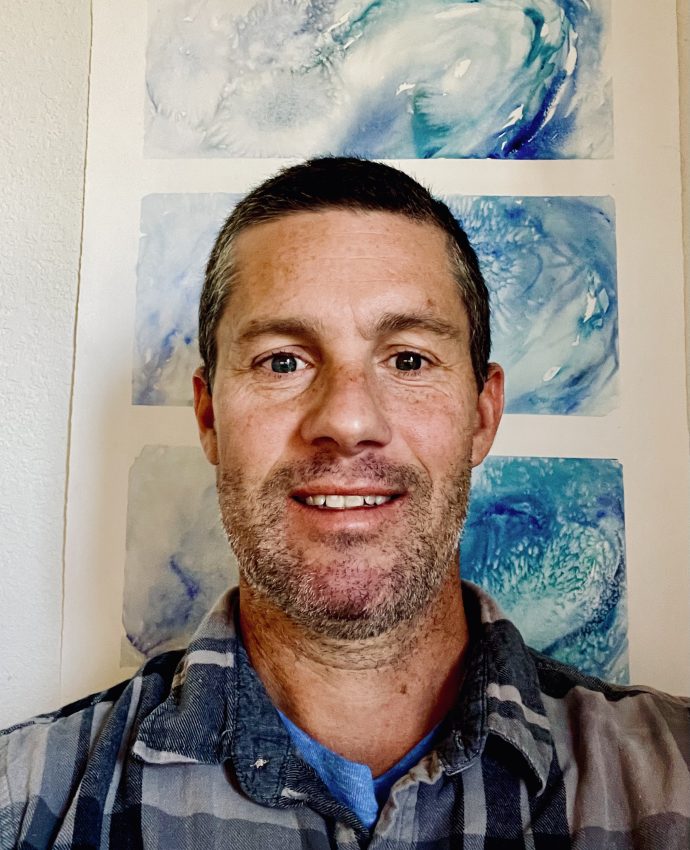
Brian Rubino
Brian is a principal at a small civil and environmental engineering, environmental consulting and surveying company on the Outer Banks of North Carolina. He has extensive experience working in coastal environments and is intimately familiar with State and Federal law and policy associated with coastal systems, wetlands, and groundwater. Brian earned his Bachelor of Science and Masters of Science degrees in Geology from East Carolina University in 1997 and 2002, respectively. He enjoys working on all aspects of living shoreline projects from the concept phase, design and permitting, through implementation and monitoring.
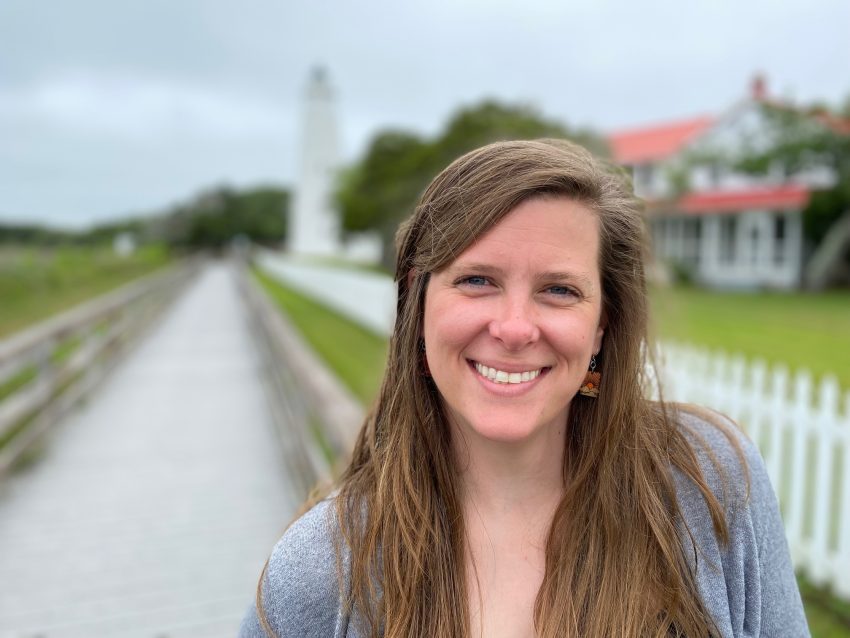
Ann Savage
Savage is responsible for creating and supporting resource and program development to grow prosperous, sustainable tourism opportunities in NC communities. Her current projects include working with Visit NC, North Carolina Division of State Parks, North Carolina Sea Grant, and the North Carolina Oyster Trail. Savage currently serves as a Tourism Extension Associate with NC State University’s Department of Parks, Recreation, Tourism and Management.
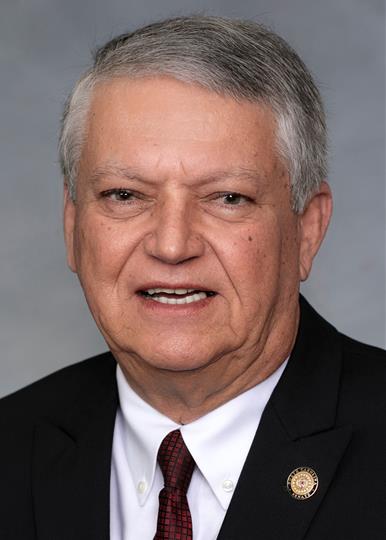
Senator Norm Sanderson
Senator Norman Sanderson serves the residents of Carteret, Chowan, Care, Hyde, Pamlico, Pasquotank, Perquimans, and Washington Counties in the NC Senate. First elected to the House of Representatives in 2010, Sen. Sanderson has served in the Senate since 2012. As Co-Chair of the Senate Committee Agriculture, Energy & Environment Committee as well as the Senate appropriations subcommittee on Agriculture, Natural & Economic Resources, Sen. Sanderson is one of the Senate’s key policymakers on natural resource and economic development. Sen. Sanderson and his wife of 51 years Linda have been small business owners for more than a quarter century, in real estate management and childcare administration. Sen. Sanderson also has experience in law enforcement and Christian private school administration.

Howard Schnabolk
Howard Schnabolk has served the past 20 years as a Habitat Restoration Specialist for the National Oceanic and Atmospheric Administration’s Fisheries Restoration Center (RC). He currently serves as the South Atlantic Team Leader for the RC and is based at NOAA’s Charleston, SC office. Howard works on developing marine restoration projects in coordination with Trustee agencies through the Natural Resources Damage Assessment process, and with partners through NOAA’s Community-based Restoration Program grants. Howard has a B.S in Natural Resources Planning from Humboldt State University and an M.P.A in Earth Systems Sciences from Columbia University.
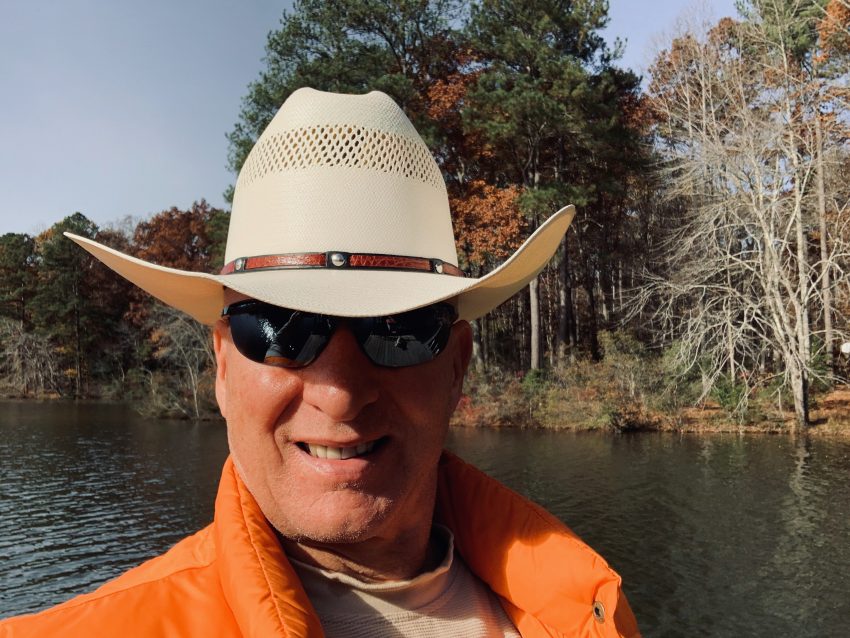
Michael Serbousek
Michael has been a volunteer for the NC Coastal Federation for 10 years and currently serves on Federation’s Board of Directors and NE Advisory Committee. Michael has been an environmentalist and conservationist for most of his adult life and joined the Federation when he and Janie moved to Kitty Hawk. Michael is a member of the Outer Banks Community Foundation and Comptroller for Martin’s Point Investment Club. Michael has a BA from UNC -Chapel Hill and an MBA from Old Dominion University. He has a business and technology background having spent over 30 years in the telecommunications and information technology industries, holding executive positions in multiple Fortune 500 companies. Michael’s father was career US Army and Michael grew up in military towns in the US and internationally. Michael is married to Janie Lassiter, Professor Emeritus Mathematics, Northern Virginia Community College where she spent 30 years teaching our young children.
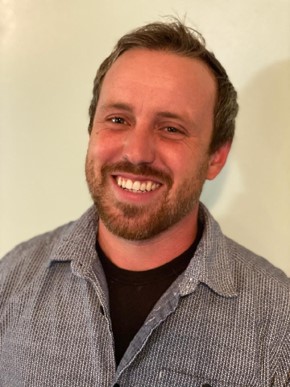
Bryan Snyder
Bryan Snyder is the Instructor of the North Carolina Shellfish Farming Academy at Carteret Community College. Bryan is a graduate of the Aquaculture Technology program at Carteret Community College and has experience working in several different types of aquaculture. After graduating, he worked in commercial shellfish aquaculture for several years before working as a mariculture extension associate for North Carolina Sea Grant where he compiled the curriculum for the North Carolina Shellfish Farming Academy and served in an extension role for the shellfish growers in the state. From there, he transitioned into his current role as Aquaculture Operations Manager at Carteret Community College.
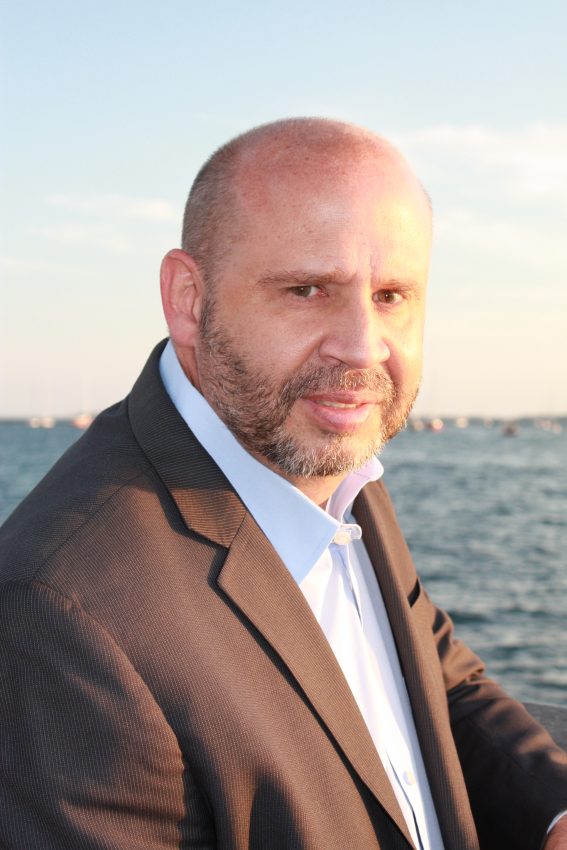
Larry Warner
Larry Warner is the Director of the North Carolina Aquarium on Roanoke Island (NCARI) Prior to assuming that position in September of 2019, he worked as Director of Exhibits for Mystic Aquarium for three years and as the Exhibits Curator at NCARI for six years . Larry holds a BFA in Design and MSt in Graphic Information Technology. The team at NCARI is delighted to be partnering with the NC Coastal Federation on an exciting interactive and educational oyster exhibit.
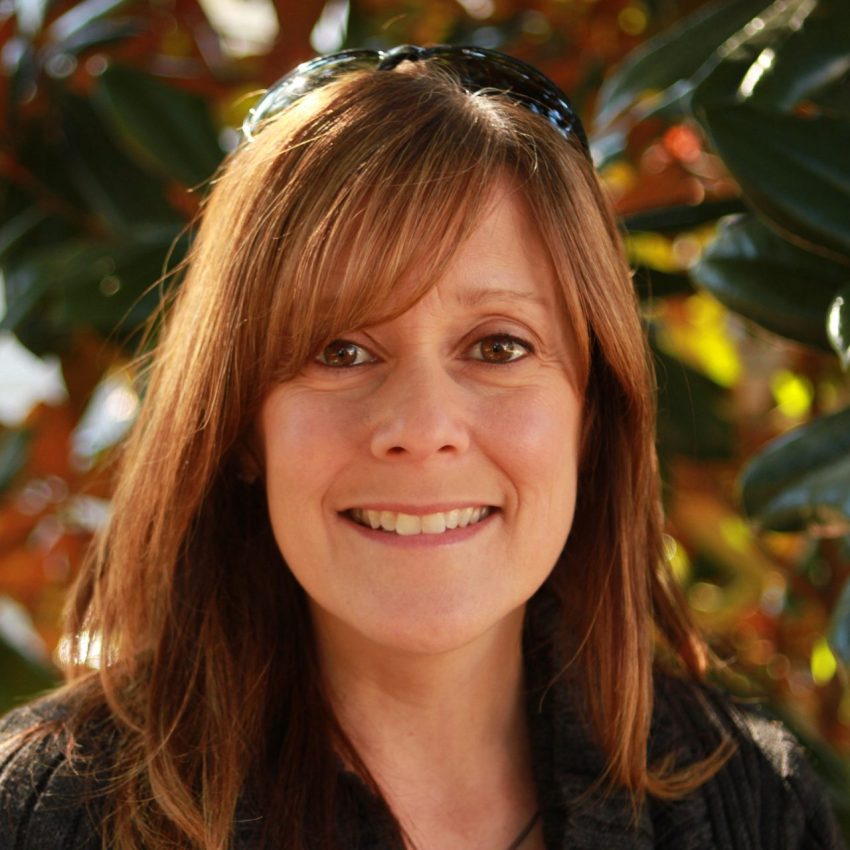
Dr. Lexia Weaver
Dr. Weaver directs the Living Shoreline Program for the North Carolina Coastal Federation. She has designed, permitted, and constructed hundreds of living shorelines from very small scales to large scales at private and public soundfront properties along the central coast of North Carolina. Lexia holds a Master of Science and a Ph.D. in Marine Studies from the University of Delaware and a Bachelor of Science in Biology with a specialization in Marine Biology from Barry University in Miami Shores, Florida.
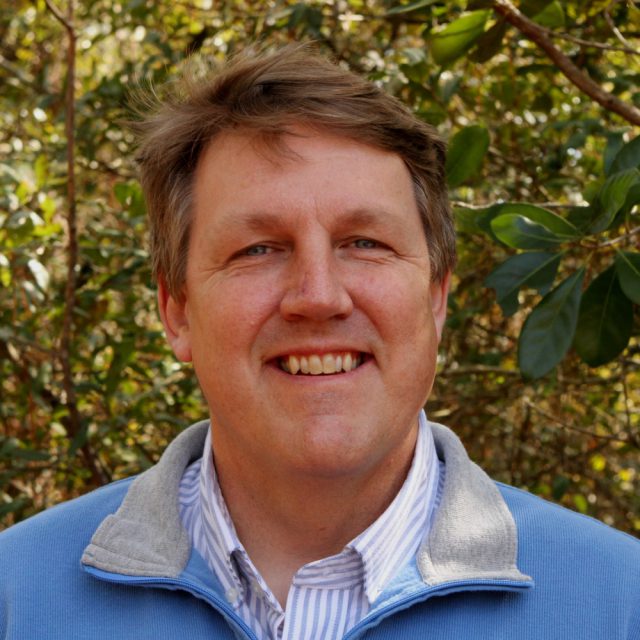
Ted Wilgis
Ted came to the Federation in 1997, from the Chesapeake Bay Foundation, after managing education programs and watershed planning initiatives for nine years. He has served as the Federation’s education director, Cape Fear Coastkeeper® and now as a coastal scientist and the Marine Debris Program Director. Ted coordinates large scale coastwide marine debris removal efforts, and he designs and implements oyster habitat restoration and living shoreline projects in the southern region. Ted holds a Bachelor of Arts in zoology from Connecticut College, and he is writing his thesis to complete the marine biology graduate program at the University of North Carolina at Wilmington. He, his wife and daughter live in Hampstead, and they enjoy exploring the marshes and islands of Topsail Sound.
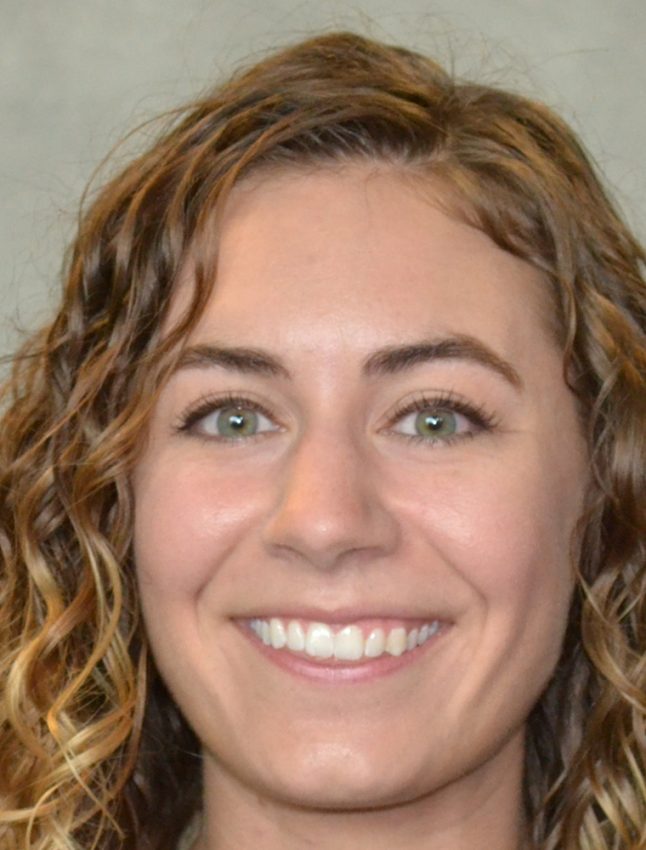
Abby Williams
In 2019, Abby obtained her Master of Science in Marine Biology from Texas A&M University Corpus Christi. During her time there, she was part of the Harte Research Institute for Gulf of Mexico Studies, where she conducted a comprehensive ecological analysis of the largest restored oyster reef in the Gulf of Mexico. Since October 2019, Abby has been working with NC Division of Marine Fisheries, serving as the Cultch Planting Biologist since 2020. Recently, in 2022, she was appointed as the Co-Lead for the North Carolina Oyster Fishery Management Plan.
Thank You Sponsors
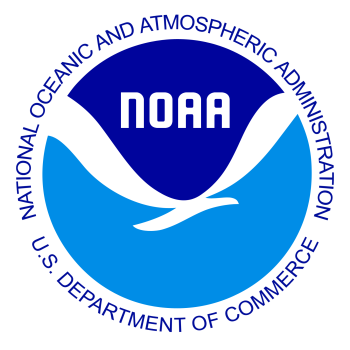





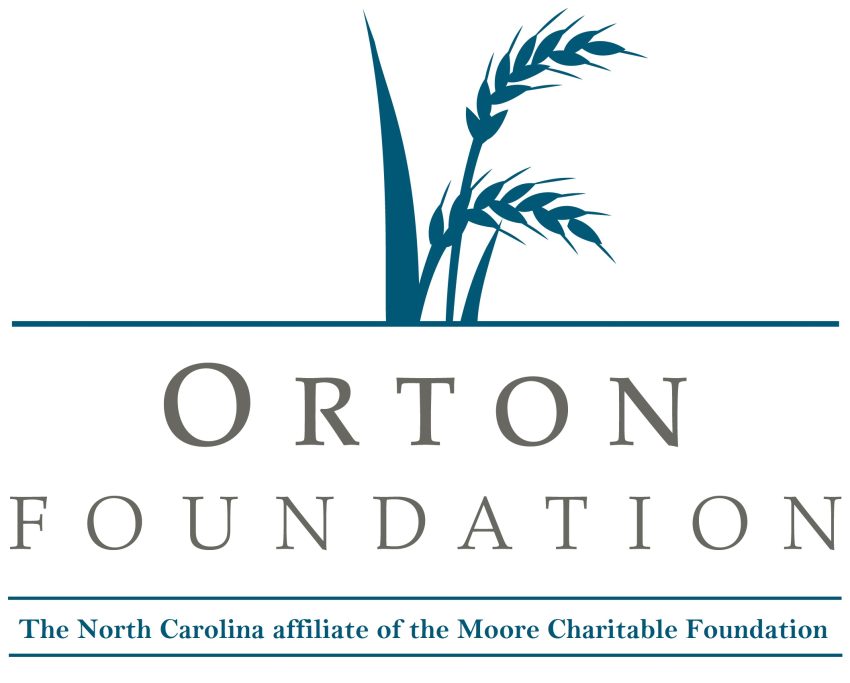

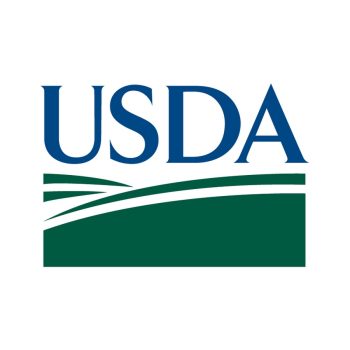
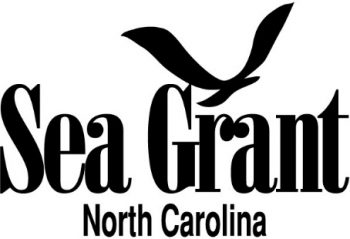

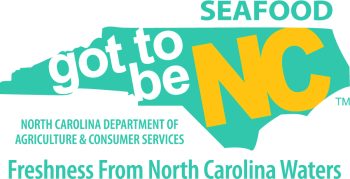
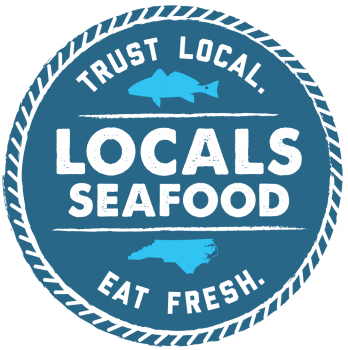
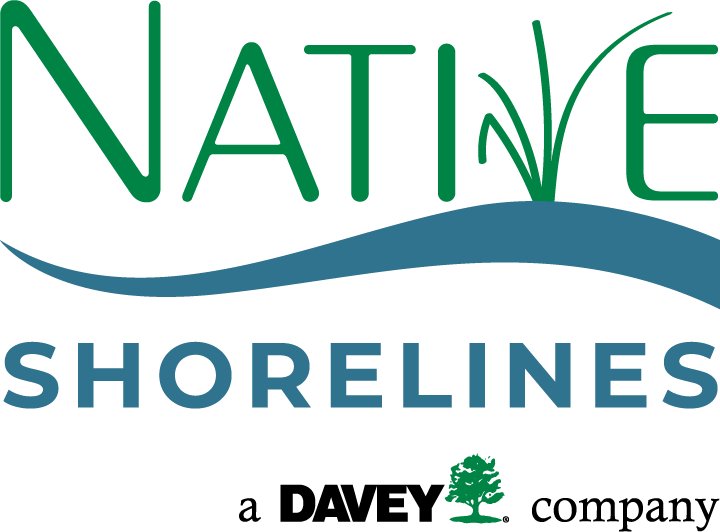


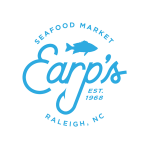
Peggy Birkemeier
Tom Looney
Camp Younts Foundation

